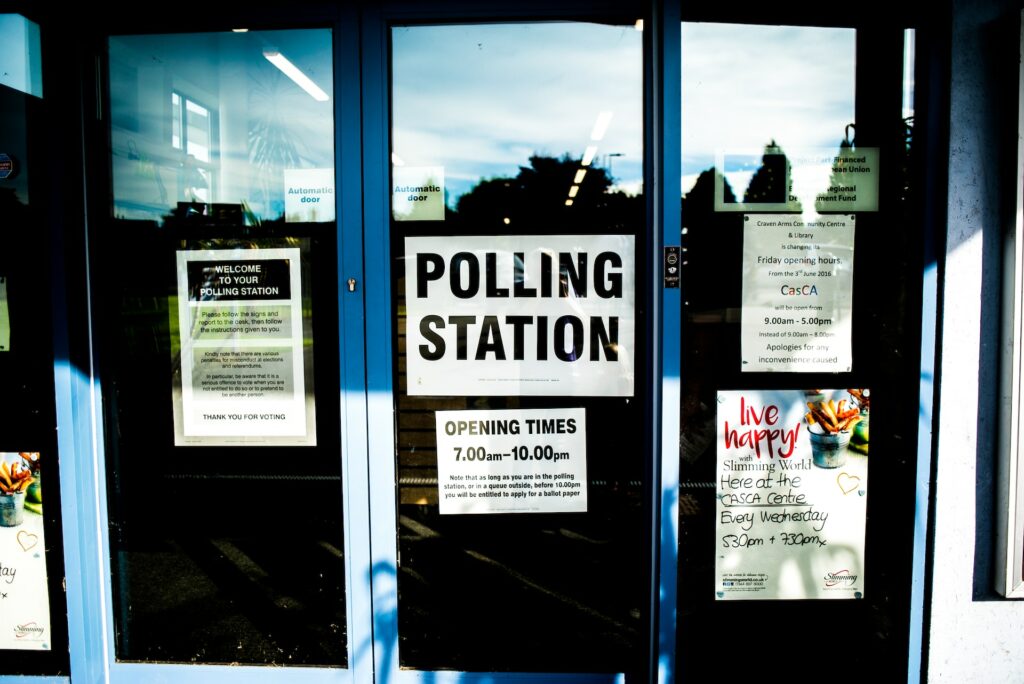
(Rightallegiance.com) – In a contentious decision, allies of former President Donald Trump who control the Georgia State Election Board voted 3-2 to implement a controversial new rule requiring counties to hand-count ballots cast at polling stations on Election Day. This move, despite bipartisan opposition, has raised concerns about delays in presidential election results in one of 2024’s key battleground states.
The rule, passed by the board’s three Republican members, was strongly opposed by the board’s Democratic and independent members, citing that it could delay election results and possibly violate state law. Georgia Attorney General Chris Carr’s office had already warned the board that such a rule would likely be unlawful, as local election workers cannot legally count ballots before official tallies. “These proposed rules are not tethered to any statute — and are, therefore, likely impermissible,” Carr’s office cautioned. They further warned that introducing this change so close to an election could lead to legal challenges, with the courts potentially blocking it altogether.
Adding to the friction, Georgia Secretary of State Brad Raffensperger voiced concerns over the timing, stating, “We’re too close to the election,” noting that early voting starts in just a few weeks. Raffensperger has been vocal in his criticism of the Trump-aligned election board and fears that the move will bring confusion to an already pressured election process.
The board’s decision also underscores a growing trend where Republicans, many of whom have doubted the legitimacy of the 2020 election, are increasingly shaping election rules. A new rule was also passed granting poll watchers more access to the election process, including ballot tabulation areas. This was spearheaded by Julie Adams, a Georgia conservative known for promoting election conspiracies, who now serves on the Fulton County Board of Registration and Elections.
Election officials have expressed deep concern about the burden this new rule will place on local election workers. Georgia State Election Board chairman John Fervier, an independent, said, “I do think it’s too close to the election,” warning that the hand-counting rule lacks statutory support. Other election experts predict that the rule could open the door for confusion, misinformation, and legal challenges, especially if Election Day results are delayed.
Verbal disputes erupted during the board meeting, with citizens and board members clashing over the possible ramifications if Trump were to lose the state again under the new rules. Critics believe that Trump might leverage the slower, hand-counted results to challenge the legitimacy of the election.
Further complicating matters, Raffensperger’s office issued a strongly worded letter criticizing the board’s actions, emphasizing that many poll workers have already completed their training under the previous rules. With early voting scheduled to begin on October 15, any changes to election procedures would take effect on October 14—leaving a very narrow window for implementation.
This marks another chapter in Georgia’s post-2020 election controversy. After Trump’s loss in the state, he pressured Raffensperger to “find” enough votes to reverse the outcome, a request Raffensperger denied. As a result, the GOP-led state legislature stripped the secretary of state of their position on the election board.
The Georgia State Election Board, while not responsible for certifying election results, plays a crucial role in shaping rules that affect how elections are conducted. The board also investigates any election irregularities, meaning its influence on future elections remains significant.
Though the board has approved the hand-counting rule, it tabled another proposal that would have imposed new requirements for marking mail-in ballots and additional tracking for postal votes. Both rules, if passed, would have introduced further layers of complexity to Georgia’s election processes.